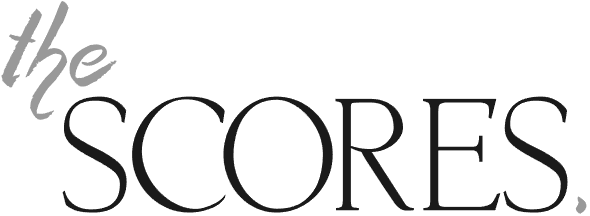from Third-Millennium Heart
by Ursula Andkjær Olsen
10
WHAT STREAMS IS MATERIAL AND IMMATERIAL
Cannot keep it solid, the material = random = uncontrollable
liquid, rushing like rivers through the immaterial
landscape. Whatever is streaming streams too fast;
a suction occurs, a hollow feeling of being mise en abyme
thrown into a fractal abyss. Whatever is streaming only
streams to stream on, never reaching its destination.
Then four walls of unreality are erected: a room
in which I can sit completely motionless and escape.
The material = necessary = determined, static, solid. The immateria
runs through a solid reality like natural springs, and the eyes recover
their moisture. I cannot move: the material creates four walls of
density, while dreams walk over my contact area with
their life-giving yellow, blue and green.
13
My name is Everything, so that when you call my name, everything will happen.
Like a current interpretation of an original hypothesis
I form my own meaning of content:
Hands of God.
My name is Nothing, so that when you call 1000 names I will come
no matter what, I will come.
Everything will be thick and RED, everything will flow.
14
My name is Wait Room
my eyes, my lungs are named Wait Room
my heart
with atrium, ventricle, cubicle
complicated being
is named Wait Room
it all goes and comes, everything flows.
I handle my pain
like an adult human being, I do nothing.
I sit here, I have a view, I do nothing.
All vessels are connected.
15
I am the fence that fences the nameless, the reservation, the universe, my
distant interior.
I can visit as often as I want.
Nobody can visit me.
16
His name is Rain On Chapped Lips
his cobalt clothes are named Rain On Chapped Lips
the land he walks on, the way he is tall and thin, like a blade
over humans, is named Cobalt Rain On Chapped
Words. His words fall like Cobalt Rain:
“Le monde occidental est perverti. Pas les individus. La culture est
pervertie, pas l’individu.” *
(Hawad)
I wash my hands, neck and face
outwardly; I let the moon touch what cannot (must)
cannot (must) be inside the
atrium, ventricle, cubicle
of the heartspace.
* The Western world is perverted. Not the individuals. The culture is perverted, not the individual.
17
Their name is Inevitable
their wife and husband with yellow eyes are named Inevitable
their children with half faces named Inevitable
their single-chamber house and their country named Inevitable
their dog, their clothes, their voiceless vermin named Inevitable
their name
their name
their vengeance is Inevitable.
Life does not mean the same to them as it does to us.
Life never means the same. Cannot (must).
18
Their name is Nameless
their wordless speech is named Nameless
their husband named Nameless
their wife, their children named Nameless
their house, their chamberless heart named Nameless
incapable of beating;
their reappearance will be Nameless.
I ornament myself with
abysses painted on my forehead like a quality-conscious pig.
I lie on their sweat-embroidery.
19
My name is Harmless
what I do is called Harmless
what I drink every morning called Harmless
what I eat every evening called Harmless.
I wish to be tall and black and grave; I need it.
My destructions are already countless.
20
I take my name from my surroundings: a place so namedrunk it
matches the namedrunk in me.
I name the place after myself: a place so nameless it
matches the nameless in me.
We walk around with our distant interior, throwing
out light. O to be beautiful when the fire erupts.
Katrine Øgaard Jensen is a translator and writer. She is one of the founding editors of EuropeNow, a journal of research and art at Columbia University, and a poetry judge for the Best Translated Book Award as well as the National Translation Award. She previously served as editor in chief of the Columbia Journal and blog editor at Asymptote and Words Without Borders. Her translations have appeared in the Washington Square Review, the Denver Quarterly, Arc Poetry Magazine, Asymptote, and elsewhere.
Ursula Andkjær Olsen (b. 1970) was born and raised in Copenhagen. She has a degree in music and philosophy from the University of Copenhagen and Technische Universität Berlin. Olsen made her literary debut in 2000 and has since published eight collections of poetry, in addition to several dramatic texts and libretti for operas such as Danish composer Pelle Gudmundsen-Holmgreen’s Sol går op, sol går ned, and composer Peter Bruun’s Miki Alone, which was awarded the Nordic Council Music Prize in 2008. Olsen has received numerous grants and prizes for her work, including the prestigious award Montanaprisen for Det 3. årtusindes hjerte (Third-Millennium Heart).
